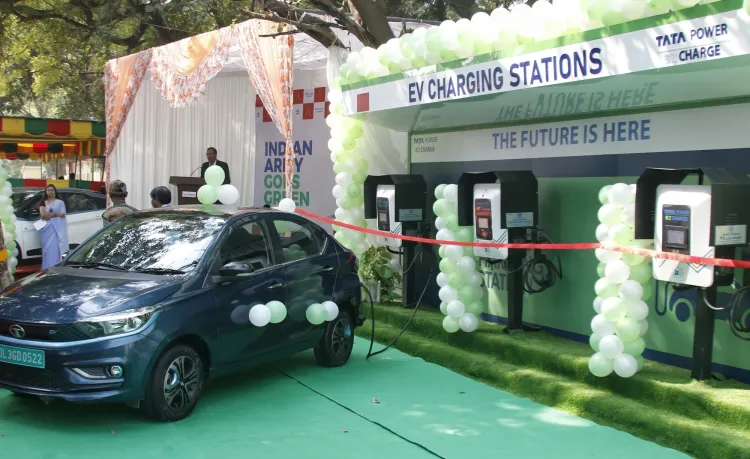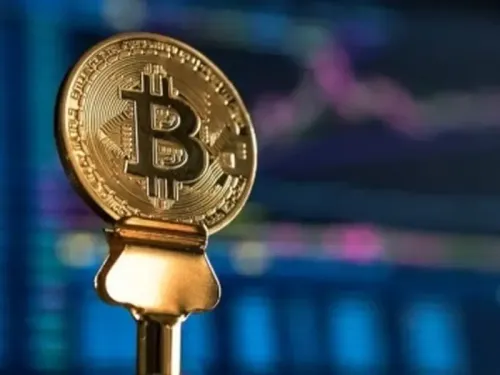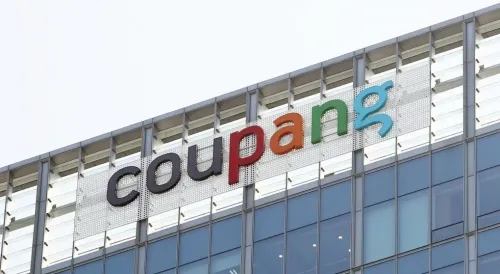Is India Collaborating with EV Manufacturers to Secure Rare Earth Magnets?

Synopsis
Key Takeaways
- Rare earth magnets are vital for EV motors.
- China's restrictions pose a significant risk to supply.
- India is building strategic inventories and seeking alternative suppliers.
- The government is focusing on domestic production incentives.
- Long-term solutions include enhancing local manufacturing and recycling capabilities.
New Delhi, June 10 (NationPress) As the diversification of supply sources is actively pursued, in conjunction with policy initiatives, the landscape continues to shift for Indian automotive companies striving for a consistent supply of rare earth magnets amidst China’s export restrictions, according to a report by Crisil released on Tuesday.
Rare earth magnets, which are inexpensive yet vital for operations, pose a significant supply-side challenge for India’s automotive industry if China’s export limitations and delays in shipment clearances persist.
A disruption lasting over a month could hinder electric vehicle (EV) launches, disrupt production, and adversely affect the sector’s growth trajectory, as stated in the Crisil Ratings report.
Recognizing this threat, both the government and manufacturers are mobilizing efforts on two fronts.
In the short term, the strategy includes building strategic inventories, seeking alternative suppliers, and accelerating local assembly under Production Linked Incentive schemes.
For long-term sustainability, reducing import reliance will depend on expediting rare earth exploration, enhancing local production capabilities, and investing in recycling infrastructure.
“Even though they account for less than 5% of a vehicle’s overall cost, these magnets are crucial for EV motors and electric steering systems. Manufacturers are actively engaging with alternative suppliers from countries like Vietnam, Indonesia, Japan, Australia, and the US, while also optimizing current inventories,” remarked Poonam Upadhyay, Director at Crisil Ratings.
In a constrained supply environment, these magnets may also be redirected to internal combustion engine (ICE) models, which require less, potentially hindering EV growth, she added.
Rare earth magnets are essential for permanent magnet synchronous motors (PMSMs) used in EVs due to their high torque, energy efficiency, and compactness. Hybrids also rely on them for effective propulsion. In ICE vehicles, their use is mainly limited to electric power steering and other motorized components.
In April, China, the world’s leading exporter of rare earth magnets, imposed export restrictions on seven rare earth elements and finished magnets, requiring export licenses.
The updated framework necessitates detailed end-use disclosures and client declarations, including assurances that the products will not be utilized for defense purposes or re-exported to the US.
With the clearance process taking a minimum of 45 days, this increased scrutiny has significantly delayed approvals. Consequently, the growing backlog has further hampered clearances, tightening global supply chains.
India, which sourced over 80% of its 540-tonne magnet imports from China last fiscal year, has begun to experience the repercussions. By the end of May 2025, nearly 30 import requests from Indian firms were sanctioned by the Indian government, but none have been approved by Chinese authorities, and no shipments have yet arrived.
This supply shortage coincides with the auto sector's preparation for extensive EV rollouts.
More than a dozen new electric models are slated for launch, primarily based on PMSM platforms.
“While most manufacturers currently possess 4-6 weeks of inventory, prolonged delays could begin to impact vehicle production, with EV models facing deferrals or rescheduling from July. A wider effect on two-wheelers (2W) and ICE passenger vehicles may follow if supply bottlenecks endure over an extended period,” noted Anuj Sethi, Senior Director at Crisil Ratings.










